Fleurs du Mal Magazine



The End
After the blast of lightning from the east,
The flourish of loud clouds, the Chariot Throne;
After the drums of time have rolled and ceased,
And by the bronze west long retreat is blown,
Shall Life renew these bodies? Of a truth
All death will he annul, all tears assuage?-
Or fill these void veins full again with youth,
And wash, with an immortal water, Age?
When I do ask white Age he saith not so:
‘My head hangs weighed with snow.’
And when I hearken to the Earth, she saith:
‘My fiery heart shrinks, aching. It is death.
Mine ancient scars shall not be glorified,
Nor my titanic tears, the seas, be dried.’
Wilfred Owen
(1893 – 1918)
The End
fleursdumal.nl magazine
More in: Archive O-P, Owen, Wilfred, WAR & PEACE
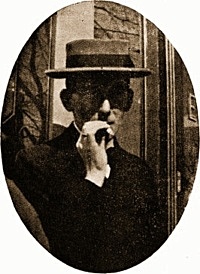
Der Henker
Ich kugle Dich auf Deiner roten Decke.
Ich bin am Werk: blank wie ein Metzgermeister.
Tische und Bänke stehen wie blitzende Messer
der Syphiliszwerg stochert in Töpfen voll Gallert und Kleister.
Dein Leib ist gekrümmt und blendend und glänzt wie der gelbe Mond
deine Augen sind kleine lüsterne Monde
dein Mund ist geborsten in Wollust und in der Jüdinnen Not
deine Hand eine Schnecke, die in den blutroten Gärten voll Weintrauben und Rosen wohnte.
Hilf, heilige Maria! Dir sprang die Frucht aus dem Leibe
sei gebenedeit! Mir rinnt geiler Brand an den Beinen herunter.
Mein Haar ein Sturm, mein Gehirn ein Zunder
meine Finger zehn gierige Zimmermannsnägel
die schlage ich in der Christenheit Götzenplunder.
Als dein Wehgeschrei dir die Zähne aus den Kiefern sprengte
da brach auch ein Goldprasseln durch die Himmelssparren nieder.
Eine gigantische Hostie gerann und blieb zwischen Rosabergen stehen
ein Hallelujah gurgelte durch Apostel- und Hirtenglieder.
Da tanzten nackichte Männer und Huren in verrückter Ekstase
Heiden, Türken, Kaffern und Muhammedaner zumal
Da stoben die Engel den Erdkreis hinunter
Und brachten auf feurigem Teller die Finsternis und die Qual.
Da war keine Mutterknospe, kein Auge mehr blutunterlaufen und ohne Hoffen
Jede Seele stand für die Kindheit und für das Wunder offen.
Hugo Ball
(1886-1927)
Der Henker
fleursdumal.nl magazine
More in: Archive A-B, Ball, Hugo, Dada, DADA, Dadaïsme
Layering joy and urgent defiance—against physical and cultural erasure, against white supremacy whether intangible or graven in stone—Trethewey’s work gives pedestal and witness to unsung icons.
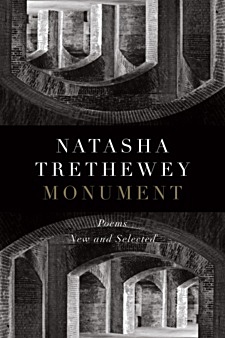 Monument, Trethewey’s first retrospective, draws together verse that delineates the stories of working class African American women, a mixed-race prostitute, one of the first black Civil War regiments, mestizo and mulatto figures in Casta paintings, Gulf coast victims of Katrina. Through the collection, inlaid and inextricable, winds the poet’s own family history of trauma and loss, resilience and love.
Monument, Trethewey’s first retrospective, draws together verse that delineates the stories of working class African American women, a mixed-race prostitute, one of the first black Civil War regiments, mestizo and mulatto figures in Casta paintings, Gulf coast victims of Katrina. Through the collection, inlaid and inextricable, winds the poet’s own family history of trauma and loss, resilience and love.
In this setting, each section, each poem drawn from an “opus of classics both elegant and necessary,”* weaves and interlocks with those that come before and those that follow.
As a whole, Monument casts new light on the trauma of our national wounds, our shared history. This is a poet’s remarkable labor to source evidence, persistence, and strength from the past in order to change the very foundation of the vocabulary we use to speak about race, gender, and our collective future.
*Academy of American Poets’ chancellor Marilyn Nelson
Natasha Trethewey, two term U.S. Poet Laureate, Pulitzer Prize winner, and 2017 Heinz Award recipient, has written five collections of poetry and one book of nonfiction. An American Academy of Arts and Sciences fellow, she is currently Board of Trustees professor of English at Northwestern University. She lives in Evanston, Illinois.
Monument: Poems New and Selected
by Natasha Trethewey
Poetry
Houghton Mifflin Harcourt
Format: Hardcover
ISBN-13/EAN: 9781328507846
ISBN-10: 132850784X
Pages: 208
Price: $26.00
November 6, 2018
# new books
Natasha Trethewey
Monument: Poems New and Selected
fleursdumal.nl magazine
More in: - Book News, - Bookstores, Archive S-T, Art & Literature News
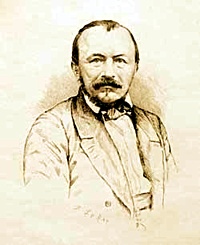
Pensée de Byron – Élégie
Par mon amour et ma constance,
J’avais cru fléchir ta rigueur,
Et le souffle de l’espérance
Avait pénétré dans mon coeur ;
Mais le temps, qu’en vain je prolonge,
M’a découvert la vérité,
L’espérance a fui comme un songe…
Et mon amour seul m’est resté!
Il est resté comme un abîme
Entre ma vie et le bonheur,
Comme un mal dont je suis victime,
Comme un poids jeté sur mon coeur!
Pour fuir le piège où je succombe,
Mes efforts seraient superflus;
Car l’homme a le pied dans la tombe,
Quand l’espoir ne le soutient plus.
J’aimais à réveiller la lyre,
Et souvent, plein de doux transports,
J’osais, ému par le délire,
En tirer de tendres accords.
Que de fois, en versant des larmes,
J’ai chanté tes divins attraits !
Mes accents étaient pleins de charmes,
Car c’est toi qui les inspirais.
Ce temps n’est plus, et le délire
Ne vient plus animer ma voix;
Je ne trouve point à ma lyre
Les sons qu’elle avait autrefois.
Dans le chagrin qui me dévore,
Je vois mes beaux jours s’envoler;
Si mon oeil étincelle encore,
C’est qu’une larme va couler!
Brisons la coupe de la vie;
Sa liqueur n’est que du poison;
Elle plaisait à ma folie,
Mais elle enivrait ma raison.
Trop longtemps épris d’un vain songe,
Gloire ! amour ! vous eûtes mon coeur:
O Gloire ! tu n’es qu’un mensonge;
Amour! tu n’es point le bonheur!
Gérard de Nerval
(1808 – 1855)
Pensée de Byron – Élégie
fleursdumal.nl magazine
More in: Archive M-N, Byron, Lord, Nerval, Gérard de
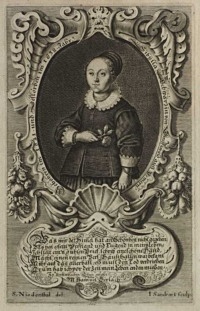
Sibylla Schwarz
Ach, Amor, nimb dein schwäres Joch von mir
Ach, Amor, nimb dein schwäres Joch von mir,
kans müglich seyn, nimb wegk die Liebes Plagen,
dein Joch ist schwer, drümb kan ichs nicht mehr tragen,
du bist zu süß, drümb klag ich über dir.
Nimb wegk die Last, sie unterdruckt mich schier:
was sol ich doch vohn deinen Pillen sagen,
die bitter sind, und doch mir wohl behagen?
Ich steh und geh im Zweiffel für und für:
wo sol ich hin? Im fall ich bin allein
so denck ich nuhr: Ach möcht ich bey Ihr seyn!
bin ich bey Ihr, so steht mir vohr das Scheiden;
liebt sie mich dan, das ich so sehr begehr,
so ist mir doch die Süßigkeit zu schwär;
Ich will den Tod wohl für die Liebe leiden.
Sibylla Schwarz (1621 – 1638)
Gedicht: Ach, Amor, nimb dein schwäres Joch von mir
fleursdumal.nl magazine
More in: Archive S-T, Archive S-T, SIbylla Schwarz
In Her Own Words: The Life and Poetry of Aelia Eudocia is the first full-length study to examine Eudocia’s writings as a unified whole and to situate them within their wider fifth-century literary, social, and religious contexts.
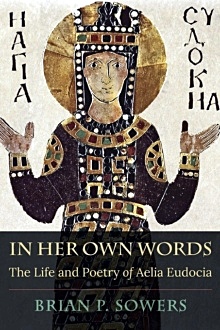 Responsible for over 3,000 lines of extant poetry, Eudocia is one of the best-preserved ancient female poets. Because she wrote in a literary mode frequently suppressed by proto-orthodox (male) leaders, much of her poetry does not survive, and what does survive remains understudied and underappreciated.
Responsible for over 3,000 lines of extant poetry, Eudocia is one of the best-preserved ancient female poets. Because she wrote in a literary mode frequently suppressed by proto-orthodox (male) leaders, much of her poetry does not survive, and what does survive remains understudied and underappreciated.
This book represents a detailed investigation into Eudocia’s works: her epigraphic poem in honor of the therapeutic bath at Hammat Gader, her Homeric cento—a poetic paraphrase of the Bible using lines from Homer—and her epic on the fictional magician-turned-Christian, Cyprian of Antioch.
Reading her poetry as a whole and in context, Eudocia emerges as an exceptional author representing three unique late-antique communities: poets interested in preserving and transforming classical literature; Christians whose religious views positioned them outside and against traditional power structures; and women who challenged social, religious, and literary boundaries.
Brian P. Sowers is Assistant Professor of Classics at Brooklyn College, City University of New York.
In Her Own Words
The Life and Poetry of Aelia Eudocia
Brian P. Sowers
Hellenic Studies Series 80
Harvard University Press
Paperback
ISBN 9780674987371
275 pages
€22.50
Publication: January 2019
# new books
Aelia Eudocia
Life and work – poetry
fleursdumal.nl magazine
More in: - Book News, Archive E-F, Archive E-F, Archive S-T, Art & Literature News, CLASSIC POETRY
Mels klopt zijn schouders af, een routinehandeling, altijd bang dat Lizet roos op zijn jas vindt. Ze heeft een hekel aan roos. Vaak borstelt ze de schouders van zijn jas af. Op straat moeten de mensen weten dat ze voor hem zorgt.
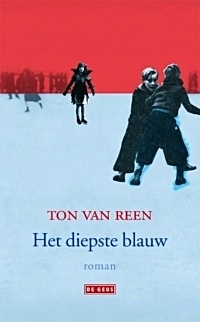 Op weg naar huis passeert hij het voormalige huis van Tijger, waarin nu de jongere zus van Tijger woont. Met haar heeft hij nauwelijks contact. Ze groeten elkaar. Soms maken ze een praatje, maar nooit over vroeger. Er zijn voor haar weinig mooie herinneringen overgebleven.
Op weg naar huis passeert hij het voormalige huis van Tijger, waarin nu de jongere zus van Tijger woont. Met haar heeft hij nauwelijks contact. Ze groeten elkaar. Soms maken ze een praatje, maar nooit over vroeger. Er zijn voor haar weinig mooie herinneringen overgebleven.
Haar vader die overleden is toen ze net geboren was. Tijger die ze nauwelijks heeft gekend. Haar moeder die gek was geworden van verdriet en zichzelf had opgeknoopt op de zolder, waar haar dochter, nog net geen zestien, haar had gevonden. Misschien dat de dochter zich daarom nooit aan iemand heeft kunnen hechten. Drie keer is ze getrouwd geweest, drie keer zijn de mannen vertrokken.
Hij kijkt altijd weer naar die deur. Nog steeds dezelfde deur, dezelfde vorm, maar in de loop der jaren met vele kleuren verf bestreken, vaak er afgebrand en weer opnieuw geschilderd.
Alle kleuren heeft de deur gehad, passend bij de stemming van de bewoners. Grijs in de jaren van Tijgers jeugd. Paars toen de jongere zus er woonde met een jonge man die aan yoga deed en elke dag op zijn kop voor het raam stond. Groen toen ze er woonde met een langharige man die dag en nacht blokfluit speelde en die haar twee kinderen naliet toen hij vertrok voor een wereldreis waarvan hij nooit was teruggekomen. Rood toen ze met een andere man ging samenwonen. En weer grijs, omdat die man zomaar verdwenen was en haar met een derde kind liet zitten. Al haar kindjes heeft ze rood haar meegegeven, als eerbetoon aan haar moeder.
Ton van Reen: Het diepste blauw (082)
wordt vervolgd
fleursdumal.nl magazine
More in: - Book News, - Het diepste blauw, Archive Q-R, Reen, Ton van
Jean Cocteau (1889-1963) is een tot de verbeelding sprekend kunstenaar.
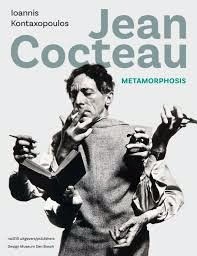 Hij uitte zich in bijna alle artistieke media: van poëzie en literatuur, beeldende kunst en vormgeving tot theater en zijn favoriete medium: film.
Hij uitte zich in bijna alle artistieke media: van poëzie en literatuur, beeldende kunst en vormgeving tot theater en zijn favoriete medium: film.
Maar meer nog dan om zijn werk was Cocteau bekend om zijn opmerkelijke leven. Hij omgaf zich met beroemdheden als Sergei Diaghilev, Edith Piaf, Pablo Picasso en Coco Chanel en raakte geregeld in opspraak vanwege zijn homoseksualiteit en drugsgebruik. Design Museum Den Bosch presenteert de eerste grote overzichtstentoonstelling van Jean Cocteau in Nederland.
Jean Cocteau – Metamorphosis werpt licht op Cocteau’s voortdurende zelftransformatie en zijn zoektocht naar een eigen identiteit. Zoals jonge mensen zich tegenwoordig digitaal een identiteit aanmeten, had Cocteau de gave om zich via diverse media steeds met andere ogen te bezien en te laten zien.
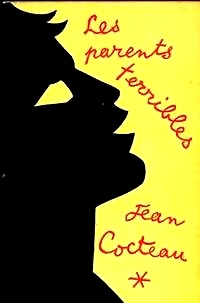 De tentoonstelling Jean Cocteau – Metamorphosis toont vele van deze gezichten, in tekeningen en schilderijen, wandtapijten en affiches, in foto en film. Een veelheid aan artistieke uitingsvormen die Cocteau alle als een zelfportret beschouwde
De tentoonstelling Jean Cocteau – Metamorphosis toont vele van deze gezichten, in tekeningen en schilderijen, wandtapijten en affiches, in foto en film. Een veelheid aan artistieke uitingsvormen die Cocteau alle als een zelfportret beschouwde
Al sinds de jaren negentig bevinden zich keramiek en sieraden van Cocteau in de collectie van het Design Museum Den Bosch.
Het werk van Jean Cocteau wijst vooruit naar de multidisciplinaire praktijk van ontwerpers en kunstenaars vvan vandaag. In onze tijd beperken Nederlandse ontwerpers als Bart Hess, Ted Noten en Studio Drift zich al evenmin tot één discipline maar verkennen de grenzen van kunst, design en digitale media.
De overzichtstentoonstelling Jean Cocteau – Metamorphosis bestaat uit meer dan 250 werken.
Vele belangrijke bruiklenen zijn verschaft door het Musée Jean Cocteau collection Séverin Wunderman uit Menton, Frankrijk, het enige aan Cocteau gewijde museum ter wereld, en door de verzameling Kontaxopoulos | Prokopchuk te Brussel, de grootste internationale privéverzameling van het werk van Cocteau.
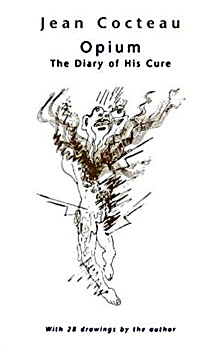 Daarnaast zijn er bruiklenen van o.m. Collection Cartier, Stedelijk Museum Amsterdam en de Koninklijke Verzamelingen.
Daarnaast zijn er bruiklenen van o.m. Collection Cartier, Stedelijk Museum Amsterdam en de Koninklijke Verzamelingen.
Belangrijke werken uit de bruiklenen zijn o.a. het wandkleed Judith et Holoferne uit Menton, het kunstenaarsboek Le Mystère de Jean l’Oiseleur uit Brussel, het zwaard Epée d’Académicien van Collection Cartier en het manuscript-gedicht Hommage à Igor Strawinsky uit de Koninklijke Verzamelingen, door president Mitterrand geschonken aan prins Claus tijdens een staatsbezoek in Parijs.
Documentaire: Nicolas Patrzynski (www.patrzynski.com) heeft een documentaire gemaakt van Jean Cocteau. Het leven en werk van Cocteau vloeien in dit werk prachtig in elkaar over. De documentaire maakt onderdeel uit van de tentoonstelling.
De tentoonstelling wordt mede mogelijk gemaakt door Mondriaan Fonds, Prins Bernhard Cultuurfonds en Turing Foundation.
Te zien van 10 november 2018 t/m 10 maart 2019
Jean Cocteau – Metamorphosis
Design Museum Den Bosch
De Mortel 4
5211 HV Den Bosch
Dinsdag t/m zondag 11 – 17 uur
Maandag gesloten
# more information Design Museum Den Bosch
fleursdumal.nl magazine
More in: Archive C-D, Art & Literature News, AUDIO, CINEMA, RADIO & TV, Exhibition Archive, Jean Cocteau, LGBT+ (lhbt+), Surrealism, SURREALISM, Surrealisme
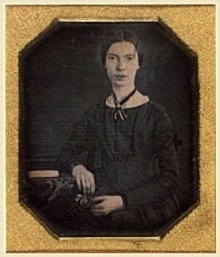
I’m Nobody! Who are you?
I’m Nobody! Who are you?
Are you – Nobody – too?
Then there’s a pair of us!
Don’t tell! they’d advertise – you know!
How dreary – to be – Somebody!
How public – like a Frog –
To tell one’s name – the livelong June –
To an admiring Bog!
Emily Dickinson
(1830-1886)
I’m Nobody! Who are you?
fleursdumal.nl magazine
More in: Archive C-D, Archive C-D, Dickinson, Emily
The Romancers
It was autumn in London, that blessed season between the harshness of winter and the insincerities of summer; a trustful season when one buys bulbs and sees to the registration of one’s vote, believing perpetually in spring and a change of Government.
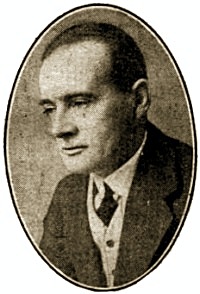 Morton Crosby sat on a bench in a secluded corner of Hyde Park, lazily enjoying a cigarette and watching the slow grazing promenade of a pair of snow-geese, the male looking rather like an albino edition of the russet-hued female. Out of the corner of his eye Crosby also noted with some interest the hesitating hoverings of a human figure, which had passed and repassed his seat two or three times at shortening intervals, like a wary crow about to alight near some possibly edible morsel. Inevitably the figure came to an anchorage on the bench, within easy talking distance of its original occupant. The uncared-for clothes, the aggressive, grizzled beard, and the furtive, evasive eye of the new-comer bespoke the professional cadger, the man who would undergo hours of humiliating tale-spinning and rebuff rather than adventure on half a day’s decent work.
Morton Crosby sat on a bench in a secluded corner of Hyde Park, lazily enjoying a cigarette and watching the slow grazing promenade of a pair of snow-geese, the male looking rather like an albino edition of the russet-hued female. Out of the corner of his eye Crosby also noted with some interest the hesitating hoverings of a human figure, which had passed and repassed his seat two or three times at shortening intervals, like a wary crow about to alight near some possibly edible morsel. Inevitably the figure came to an anchorage on the bench, within easy talking distance of its original occupant. The uncared-for clothes, the aggressive, grizzled beard, and the furtive, evasive eye of the new-comer bespoke the professional cadger, the man who would undergo hours of humiliating tale-spinning and rebuff rather than adventure on half a day’s decent work.
For a while the new-comer fixed his eyes straight in front of him in a strenuous, unseeing gaze; then his voice broke out with the insinuating inflection of one who has a story to retail well worth any loiterer’s while to listen to.
“It’s a strange world,” he said.
As the statement met with no response he altered it to the form of a question.
“I daresay you’ve found it to be a strange world, mister?”
“As far as I am concerned,” said Crosby, “the strangeness has worn off in the course of thirty-six years.”
“Ah,” said the greybeard, “I could tell you things that you’d hardly believe. Marvellous things that have really happened to me.”
“Nowadays there is no demand for marvellous things that have really happened,” said Crosby discouragingly; “the professional writers of fiction turn these things out so much better. For instance, my neighbours tell me wonderful, incredible things that their Aberdeens and chows and borzois have done; I never listen to them. On the other hand, I have read ‘The Hound of the Baskervilles’ three times.”
The greybeard moved uneasily in his seat; then he opened up new country.
“I take it that you are a professing Christian,” he observed.
“I am a prominent and I think I may say an influential member of the Mussulman community of Eastern Persia,” said Crosby, making an excursion himself into the realms of fiction.
The greybeard was obviously disconcerted at this new check to introductory conversation, but the defeat was only momentary.
“Persia. I should never have taken you for a Persian,” he remarked, with a somewhat aggrieved air.
“I am not,” said Crosby; “my father was an Afghan.”
“An Afghan!” said the other, smitten into bewildered silence for a moment. Then he recovered himself and renewed his attack.
“Afghanistan. Ah! We’ve had some wars with that country; now, I daresay, instead of fighting it we might have learned something from it. A very wealthy country, I believe. No real poverty there.”
He raised his voice on the word “poverty” with a suggestion of intense feeling. Crosby saw the opening and avoided it.
“It possesses, nevertheless, a number of highly talented and ingenious beggars,” he said; “if I had not spoken so disparagingly of marvellous things that have really happened I would tell you the story of Ibrahim and the eleven camel-loads of blotting-paper. Also I have forgotten exactly how it ended.”
“My own life-story is a curious one,” said the stranger, apparently stifling all desire to hear the history of Ibrahim; “I was not always as you see me now.”
“We are supposed to undergo complete change in the course of every seven years,” said Crosby, as an explanation of the foregoing announcement.
“I mean I was not always in such distressing circumstances as I am at present,” pursued the stranger doggedly.
“That sounds rather rude,” said Crosby stiffly, “considering that you are at present talking to a man reputed to be one of the most gifted conversationalists of the Afghan border.”
“I don’t mean in that way,” said the greybeard hastily; “I’ve been very much interested in your conversation. I was alluding to my unfortunate financial situation. You mayn’t hardly believe it, but at the present moment I am absolutely without a farthing. Don’t see any prospect of getting any money, either, for the next few days. I don’t suppose you’ve ever found yourself in such a position,” he added.
“In the town of Yom,” said Crosby, “which is in Southern Afghanistan, and which also happens to be my birthplace, there was a Chinese philosopher who used to say that one of the three chiefest human blessings was to be absolutely without money. I forget what the other two were.”
“Ah, I daresay,” said the stranger, in a tone that betrayed no enthusiasm for the philosopher’s memory; “and did he practise what he preached? That’s the test.”
“He lived happily with very little money or resources,” said Crosby.
“Then I expect he had friends who would help him liberally whenever he was in difficulties, such as I am in at present.”
“In Yom,” said Crosby, “it is not necessary to have friends in order to obtain help. Any citizen of Yom would help a stranger as a matter of course.”
The greybeard was now genuinely interested.
The conversation had at last taken a favourable turn.
“If someone, like me, for instance, who was in undeserved difficulties, asked a citizen of that town you speak of for a small loan to tide over a few days’ impecuniosity — five shillings, or perhaps a rather larger sum — would it be given to him as a matter of course?”
“There would be a certain preliminary,” said Crosby; “one would take him to a wine-shop and treat him to a measure of wine, and then, after a little high-flown conversation, one would put the desired sum in his hand and wish him good-day. It is a roundabout way of performing a simple transaction, but in the East all ways are roundabout.”
The listener’s eyes were glittering.
“Ah,” he exclaimed, with a thin sneer ringing meaningly through his words, “I suppose you’ve given up all those generous customs since you left your town. Don’t practise them now, I expect.”
“No one who has lived in Yom,” said Crosby fervently, “and remembers its green hills covered with apricot and almond trees, and the cold water that rushes down like a caress from the upland snows and dashes under the little wooden bridges, no one who remembers these things and treasures the memory of them would ever give up a single one of its unwritten laws and customs. To me they are as binding as though I still lived in that hallowed home of my youth.”
“Then if I was to ask you for a small loan —” began the greybeard fawningly, edging nearer on the seat and hurriedly wondering how large he might safely make his request, “if I was to ask you for, say —”
“At any other time, certainly,” said Crosby; “in the months of November and December, however, it is absolutely forbidden for anyone of our race to give or receive loans or gifts; in fact, one does not willingly speak of them. It is considered unlucky. We will therefore close this discussion.”
“But it is still October!” exclaimed the adventurer with an eager, angry whine, as Crosby rose from his seat; “wants eight days to the end of the month!”
“The Afghan November began yesterday,” said Crosby severely, and in another moment he was striding across the Park, leaving his recent companion scowling and muttering furiously on the seat.
“I don’t believe a word of his story,” he chattered to himself; “pack of nasty lies from beginning to end. Wish I’d told him so to his face. Calling himself an Afghan!”
The snorts and snarls that escaped from him for the next quarter of an hour went far to support the truth of the old saying that two of a trade never agree.
The Romancers
From ‘Beasts and Super-Beasts’
by Saki (H. H. Munro)
(1870 – 1916)
fleursdumal.nl magazine
More in: Archive S-T, Saki, Saki, The Art of Reading
Mort d’une surdose d’opium en 1919 à l’âge de vingt-trois ans, alors qu’il est encore sous l’uniforme, Jacques Vaché est reconnu comme celui par qui le surréalisme est arrivé.
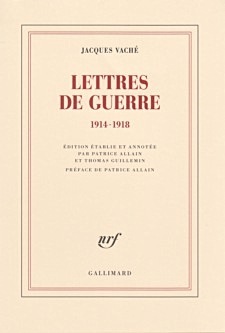 Du premier Manifeste à ses derniers Entretiens, André Breton aura toujours célébré celui qu’il appelait «l’homme que j’ai le plus aimé au monde».
Du premier Manifeste à ses derniers Entretiens, André Breton aura toujours célébré celui qu’il appelait «l’homme que j’ai le plus aimé au monde».
Et quinze Lettres de guerre, envoyées depuis le front à son ami poète ainsi qu’à Théodore Fraenkel et Louis Aragon, auront suffi pour que Vaché devienne l’arme secrète de plusieurs générations.
Breton révélait en 1919 son «Umour» sans H, surgi au milieu des combats, l’expression poétique la plus pure de l’humour noir et de la «désertion intérieure».
Présenter pour la première fois l’intégralité des lettres écrites par Jacques Vaché à sa famille et à ses amis pendant la guerre (158 dont 23 totalement inédites) permet de marquer le point de départ d’une aventure moderne et de mettre en lumière le soldat en action, la vocation prometteuse du dessinateur et la singularité du «dandy des tranchées».
Jacques Vaché:
Lettres de guerre (1914-1918)
Édition de Patrice Allain et Thomas Guillemin.
Préface de Patrice Allain
Collection Blanche, Gallimard
Parution: 08-11-2018
480 pages,
ill.,
140 x 205 mm
Achevé d’imprimer: 01-10-2018
Genre : Correspondances
Prix: 24,00 €
# new books
Jacques Vaché:
Lettres de guerre (1914-1918)
fleursdumal.nl magazine
More in: #Biography Archives, *War Poetry Archive, - Book News, - Bookstores, Archive U-V, Archive U-V, Art & Literature News, Jacques Vaché, Opium-Eaters, Vaché, Jacques
An indispensable anthology of brilliant hard-to-find writings by Poe on poetry, the imagination, humor, and the sublime which adds a new dimension to his stature as a speculative thinker and philosopher. Essays (in translation) by Charles Baudelaire, Stéphane Mallarmé, Paul Valéry, & André Breton shed light on Poe’s relevance within European literary tradition.
These are the arcana of Edgar Allan Poe: writings on wit, humor, dreams, drunkenness, genius, madness, and apocalypse. Here is the mind of Poe at its most colorful, its most incisive, and its most exceptional.
 Edgar Allan Poe’s dark, melodic poems and tales of terror and detection are known to readers everywhere, but few are familiar with his cogent literary criticism, or his speculative thinking in science, psychology or philosophy. This book is an attempt to present his lesser known, out of print, or hard to find writings in a single volume, with emphasis on the theoretical and esoteric. The second part, “The Friend View,” includes seminal essays by Poe’s famous admirers in France, clarifying his international literary importance.
Edgar Allan Poe’s dark, melodic poems and tales of terror and detection are known to readers everywhere, but few are familiar with his cogent literary criticism, or his speculative thinking in science, psychology or philosophy. This book is an attempt to present his lesser known, out of print, or hard to find writings in a single volume, with emphasis on the theoretical and esoteric. The second part, “The Friend View,” includes seminal essays by Poe’s famous admirers in France, clarifying his international literary importance.
America has never seen such a personage as Edgar Allan Poe. He is a figure who appears once an epoch, before passing into myth. American critics from Henry James to T. S. Eliot have disparaged and attempted to explain away his influence to no end, save to perpetuate his fame. Even the disdainful Eliot once conceded, “and yet one cannot be sure that one’s own writing has not been influence by Poe.”
Edgar Allan Poe (1809-1849), born in Boston, Massachusetts, was an American poet, writer, editor, and literary critic. He is well known for his haunting poetry and mysterious short stories. Regarded as being a central figure of Romanticism, he is also considered the inventor of detective fiction and the growing science fiction genre. Some of his most famous works include poems such as The Raven, Annabel Lee, and A Dream Within a Dream; tales such as The Cask of Amontillado, The Masque of Red Death, and The Tell-Tale Heart.
Title: The Unknown Poe
Subtitle: An Anthology of Fugitive Writings
Author: Edgar Allan Poe
Edited by Raymond Foye
Publisher: City Lights Publishers
Format: Paperback
124 pages
1980
ISBN-10 0872861104
ISBN-13 9780872861107
List Price $11.95
# American writers
Edgar Allan Poe
fleursdumal.nl magazine
More in: - Book Lovers, - Book Stories, Archive O-P, Archive O-P, Art & Literature News, Edgar Allan Poe, Poe, Edgar Allan, Poe, Edgar Allan, Tales of Mystery & Imagination
Thank you for reading Fleurs du Mal - magazine for art & literature